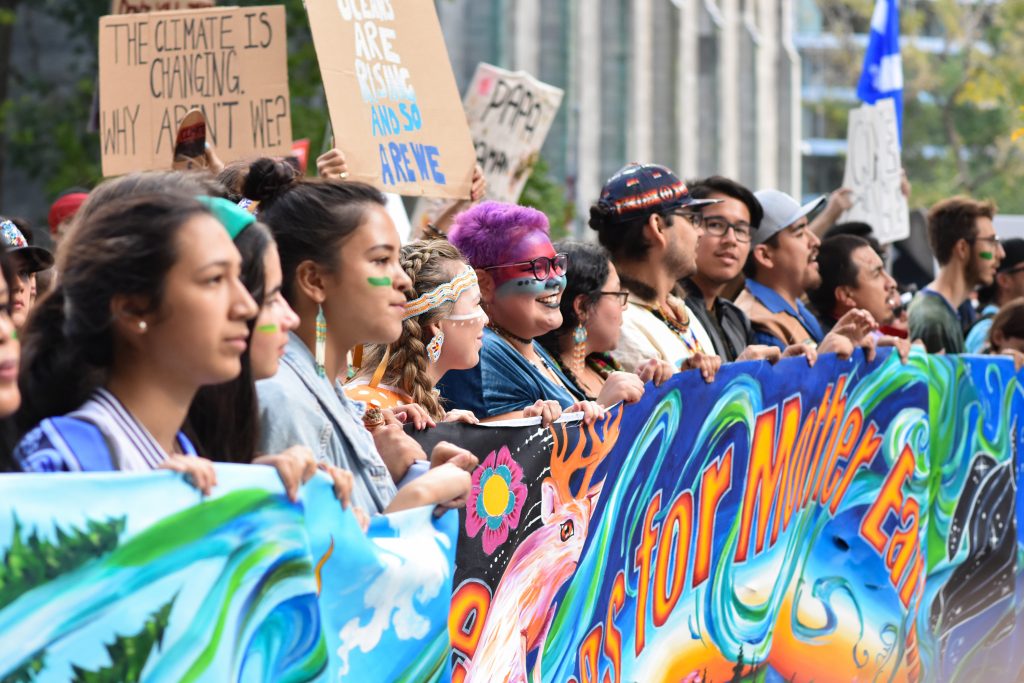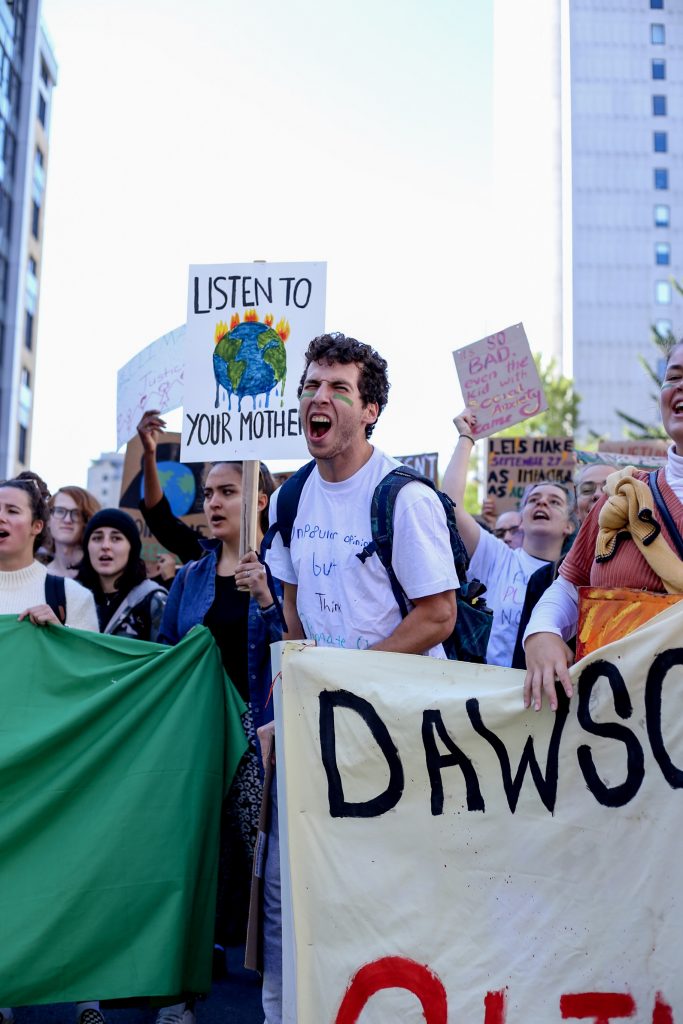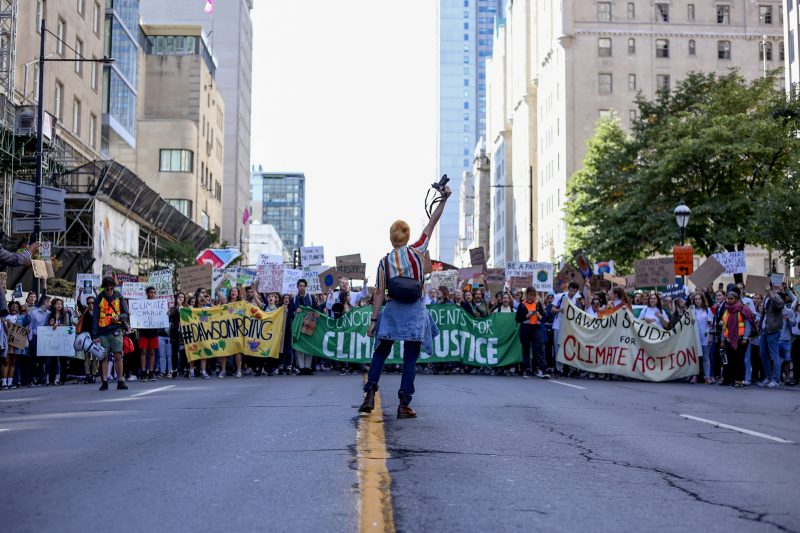Greta Thunberg, a 16-year-old Swedish climate activist, and representatives from different Indigenous groups led the march against climate change in Montreal last Friday.
Around 500,000 people were gathered at Sir-Georges-Étienne-Cartier monument on Parc Avenue to trek to Bonaventure Parc, where Thunberg addressed the crowd.
“You are a nation that is allegedly a climate leader and Sweden is also a nation that is allegedly a climate leader,” said Thunberg during her speech. “In both cases, it means absolutely nothing because in both cases it’s just empty words. So we are basically the same,” she added, jokingly.

The Swedish activist sailed across the Atlantic on a zero-carbon emission sailing boat back in early September to take part in a United Nation climate summit. She spoke in front of the committee, condemning the inaction of world leaders.
“I shouldn’t be up here. I should be back in school on the other side of the ocean,” she said during her UN speech. “Yet you all come to us, young people, for hope. How dare you. You have stolen my dreams, my childhood with your empty words.”
She continued stressing the consequences of climate change, such as the extinction of complete ecosystems and the loss of individual human lives.
“We are at the beginning of mass extinction and all you can talk about is money and fairytales of eternal economic growth,” she said with an emotional, assertive tone.“How dare you.”
Alongside Montreal, hundreds of cities worldwide joined the march on Sept. 27, in solidarity against climate inaction.
In Montreal, a historical association of 21 organizations, including Greenpeace, the David Suzuki Foundation and the various branches of La Planète s’invite au Parlement, all came together in the creation and promotion of the protest.
“We are climate justice seekers,” said Jacob Robitaille, Concordia Geography student and internal coordinator for La Planete s’invite à l’Université (LPSU). “We want to have a just, equitable and equal transition. We are trying to develop a firmer, anti-colonial stance because we believe that the environmental crisis has everything to do with the abuse of Indigenous people; the constant oppression and taking away of lands. These issues are very much interconnected and we want to bring forward the message to regular people.”

It is therefore a question of education, said Robitaille. The LPSU’s fundamental goal is to educate the general public, from the bottom up, and incite policy change from the governmental institutions.
“Being a geography student, I know the climate crisis is driven mainly by diet,” said Robitaille. “People don’t grasp that issue enough. If you stop eating beef one week at a time, it has a significant impact on your CO2 emission, your water use and land use. It is really as simple as that.”
The LPSU, a student climate activist mobilization, started being more active last February, as an answer to Thunberg’s global cry. The movement has been overwhelmingly picked up by youth, as people want to get involved at a younger age. The people who are the most organized in this movement are the high schoolers, Robitaille said.
“They are fed up,” said Robitaille. “They don’t have a voice politically, they don’t have the means, there are so many barriers for them to get their voice heard; people don’t take them seriously. So, our movement is founded on that. We want to push a ground-up change.”
Indeed, according to François Geoffroy, a spokesperson for La Planete s’invite au Parlement, more than 200,000 students were given permission to strike on Friday.
And as Montreal saw 500,000 citizens walk down its streets on Friday, one can only imagine the impact of such a movement on the upcoming Federal election. The potential of leading this energetic youth to vote for a party that offers an environmental platform is undeniably massive.

Yet, the LPSU remains an apolitical organization. Instead, Robitaille said they believe in flipping the entire script around and are more than willing to denounce the nonsense and lack of policy from the Conservatives and Liberals.
On Sept. 24, three days prior to the march, 10 Quebec universities, including Concordia, united to declare a climate emergency. CTV News reported that they all recognize the need for social change and have vowed to become carbon-neutral by 2050, to finance more research on climate change, and to increase the number of environmental and sustainability-related academic programs and other resources.
The impact of the Global Week for Future, the series of international protests asking for climate justice, is yet to be seen. But the conversations are changing and there is currently a momentum building, according to Robitaille.
“At the end, we are just a group of students that don’t want to die,” said Robitaille.
WATCH:
The Concordian talks climate change, veganism, and the federal elections with participants of Montreal’s
Jad Abukasm contributed to this report
Feature photo by Alex Hutchins, photos by Jad Abukasm, Laurence B.D., and Alex Hutchins, video by Thomas Quinn




